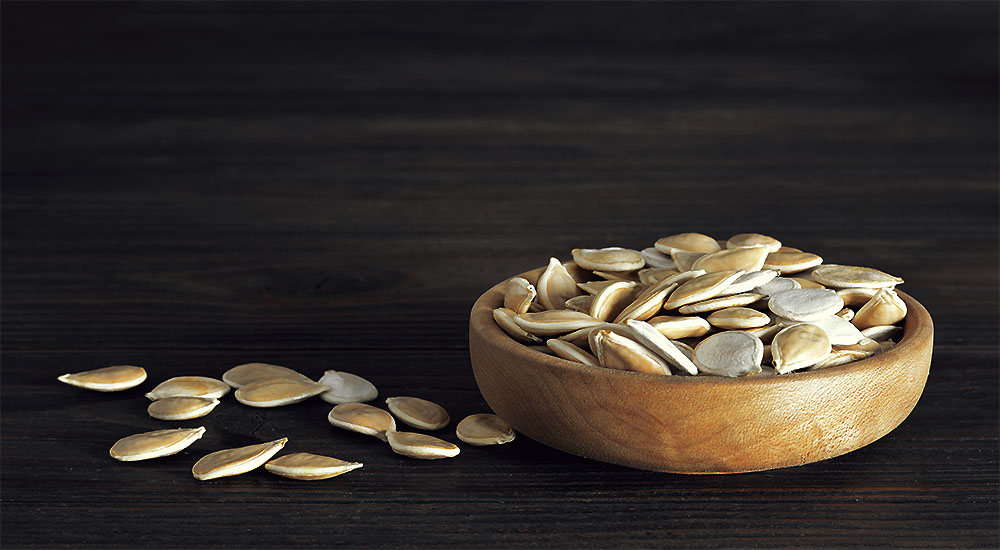What is a Leaky Gut?

If you’ve been around the gluten-free world for a little while you’ve likely heard the expression “leaky gut”. It sounds odd but it’s very real and left untreated can have a big impact on your health.
If you’ve asked your conventional medicine doctor or gastroenterologist about leaky gut and gotten a negative response, you should find a doctor who is more current in the field. Having a clinician who truly understands how to evaluate for and treat leaky gut is truly critical for your regained health.
In the field of Functional Medicine, we’ve been discussing leaky gut for about a decade, during which time conventional medicine shared no agreement. But now there’s enough research to support and validate not only its existence but the importance of reversing it.
Your small intestine is 23 feet long. Unlike the pipe beneath your sink, the lining of your intestine is not smooth. It looks more like a shag carpet. All the “shags”, correctly name villi, are finger-like projections that give your small intestine its tremendous surface area.
If you look down at your belly, you may wonder where you’re housing 23 feet of the small intestine. Now add to that the fact that the surface area of the 23 feet is factually the size of a tennis court, and it begins to blow your mind a little.
The job of your small intestine is to effectively digest your food and then deliver those nutrients to all your cells via your bloodstream. You have 10 trillion cells to feed, so it requires a large area to effectively digest and absorb the food you eat.
Additionally, 70-80% of the human immune system is found in your gut. This robust immune presence in your gut ensures that any dangerous organisms that might “hitchhike” along with your food, such as bacteria, parasites, amoeba, or yeast, will be eradicated quickly and effectively.
Your gut is called the second brain for two reasons:
- The gut is second in importance to only the brain
- The gut has an “intelligence”, provided by your immune system, which allows for the passage of healthy food out to your bloodstream, while at the same time preventing any hostile invaders from entering your body via your bloodstream.
That sounds like a pretty intense job, and it is. If both systems are functioning optimally, your gut and immune system perform that job very well, allowing you to enjoy great health.
A leaky gut occurs when the immune system becomes compromised, and it’s not able to maintain the tight control on the opening and closing of the microscopic “gates” across the tennis court. The gates should only open to allow healthy food to pass out of the gut and into the bloodstream. The gates should close tight and bar any bad guys from escaping into your bloodstream.
This is why 70-80% of your immune system is located in your gut. It requires that majority to handle the very big job of guarding all the microscopic openings along the length of your intestine.
How does leaky gut occur? The guts are deemed “leaky” when the tight junctions or “gates” are not appropriately guarded. The immune cells that should be present aren’t there in adequate numbers. Something has compromised your immune system. When the immune cells are not on guard, the gates are left open, creating an unhealthy scenario. Open gates, leakiness, allow bacteria and toxins, along with partially digested food, to escape into your bloodstream.
The inevitable result of a leaky gut is widespread inflammation, the root cause of all degenerative diseases, including autoimmune disease.
What can compromise your immune system?
- Gluten
- Other food sensitivities your body reacts to – dairy, corn, and soy are potentially high on the list
- The presence of certain infectious agents – these must be tested for
- Drugs
- GMO foods – avoid as many as possible. If you tolerate soy well, ensure it’s organic, otherwise, it’s likely GMO.
- Toxins
- Genetics – this too can be tested for
Symptoms of leaky gut
There are several symptoms of leaky gut including:
- Bloating or gas
- Food sensitivities, especially gluten
- Fatigue
- Diarrhea and constipation
- Joint pain or arthritis
- Depression or anxiety
- Nutritional deficiencies
- Headaches, brain fog, poor concentration
- Skin conditions such as acne, eczema, or rosacea
- Having the diagnosis of an autoimmune disease
Research by Dr. Fasano and his team discovered the substance zonulin, responsible for the leakiness that occurs between the cells (called tight junctions) of your small intestine.
The team discovered gluten and bacteria in the intestine as major triggers of leaky gut. While some people are more susceptible to gluten than others, particularly those with celiac disease and gluten sensitivity, it was fascinating that the researchers documented gluten to create a leaky gut in everyone, regardless of the presence of celiac disease or gluten sensitivity. The time frame for the “leakiness” was shorter in those without either gluten condition, but it still occurred.
In addition to the triggers of gluten and bacteria, other factors believed to contribute include:
High sugar intake – honestly, any sugar is too much, but try not to exceed 12 grams per day.
NSAIDs – non-steroidal anti-inflammatory drugs such as Advil, Motrin, Asprin, and Ibuprofen.
Nutrient deficiencies – it’s interesting that the nutritional deficiencies associated with leaky gut align with the nutritional deficiencies commonly seen in celiac patients – Vitamin D3, A, zinc.
Inflammation can be a “chicken or egg” scenario. Inflammation causes leaky gut and leaky gut causes inflammation. Therefore, both must be addressed comprehensively to accomplish the true resolution of the condition.
Loss of gut health – similar to inflammation, leaky gut both creates and is a result of poor gut health. For this reason, taking a supplement to help heal the gut but missing the true underlying cause, will not result in the healing you desire.
It would be like putting aloe on a cut to help heal it while you continued to damage the skin by rubbing it with sandpaper. No forward progress would be made.
There is some disagreement on whether leaky gut causes disease or is the result of it, but several studies on animals where researchers evaluated celiac disease, type 1 diabetes, and IBS, have demonstrated the presence of leaky gut prior to the disease’s onset.
Much of Dr. Fasano’s work supports this as well.
What can you do to heal a leaky gut and support gut health?
Quercetin –is an antioxidant found in a variety of fruits and vegetables including garlic, capers, cherries, red grapes, blackberries, onions, and apples, to name a few. Quercetin is a natural anti-inflammatory. It’s available in supplement form but must be high quality to be effective.
Zinc – a commonly deficient mineral is integral to maintaining tight junction health.
A strategy of supporting the “good guys” in your gut and starving the “bad guys” yields this dietary advice:
Limit your intake of sugar and refined carbohydrates (which turn into sugar) to starve the bad bacteria that may be lurking in your gut.
Take a good quality probiotic to feed and support the good guys. Mix up the types of probiotics you take so that you can introduce a variety of good bacteria into your system.
Your good bacteria love fiber, so include 9 servings of vegetables and fruit in your daily routine, plus beans and seeds. Flaxseeds are especially beneficial.
Fermented foods are also very healthful for your gut bacteria. Sauerkraut, kimchi, kombucha, are part of this group of foods.
There are certain drugs known to create a leaky gut. NSAIDs, including aspirin, are high on the list along with steroids, antacids, and birth control pills.
Is there a lab test for leaky gut?
Yes. There is a blood test that is accurate for leaky gut. Here at the clinic, we’ve had varying opinions about the test.
- If someone wants it documented, the test performs that function very well.
- If a patient is cost conscious and there are other tests we also need to perform, sometimes we can wait on the leaky gut test based on an assumption of its presence based on the patient’s symptoms and health history.
- In a perfect world where financial considerations aren’t a concern, getting a baseline test is excellent and as the patient heals follow-up testing reveals that the “leakiness” is improving.
The Fix
The cause of your leaky gut needs to be identified and those factors removed from the equation. Whether it’s gluten, an infection, or a drug, eliminating those initiators of the leaky gut must be addressed.
Then, the second step is to heal the gut. Now that you’ve removed the causative agent, healing is possible.
There’s not a single supplement that handles leaky gut. Hopefully, that makes sense, now that I’ve explained the need to eliminate the causative factors.
Find a clinician who understands this condition well and is savvy with the available testing necessary to identify the root cause. If you need assistance, feel free to reach out.
Do you need help with your health?
We have the diagnostic and testing tools, the clinical experience, and a different medical approach to discovering the root cause of why you have the symptoms that are bothering you. As long as you are ready to make some dietary and lifestyle changes, we can help you. We will "hold your hand" through the changes, step by step, to make each step an easy one. We are located in Clearwater, FL, at 1000 S Ft Harrison, at the corner of Ft. Harrison Ave. and Magnolia St. There is plenty of parking space directly accessible from Ft Harrison. If it is not convenient for you to come to Root Cause Medical Clinic, we offer telehealth/telemedicine consultations to residents of certain states. Call us for details.
Contact us for a Consultation – Call 727-335-0400

Dr. Vikki Petersen DC. CCN
Founder of Root Cause Medical Clinic
Certified Functional Medicine Practitioner
Dr Vikki Petersen is a public speaker, author of two books, several eBooks and creates cutting edge content for her YouTube community. Dr Vikki is committed to bringing Root Cause Medicine and its unique approach to restoring health naturally to the world.
Ask a Doctor
Have a health concern you'd like to speak with a doctor about? Or just want clarity on a subject? Ask Us!
Featured Articles
Popular Stories
References:
- https://www.ncbi.nlm.nih.gov/pmc/articles/PMC3384703/ Ann N Y Acad Sci. 2012 Jul; 1258(1): 25–33.doi: 10.1111/j.1749-6632.2012.06538.x Zonulin, regulation of tight junctions, and autoimmune diseases Alessio Fasano
- https://journals.plos.org/plosone/article?id=10.1371/journal.pone.0078775

